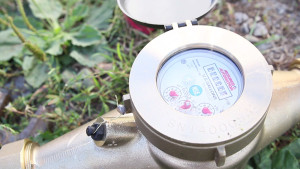An overwhelming majority of wineries in Ontario recognize the value of water and how sustainable water management practices can improve winery operational performance, reduce costs and support growth, a recent survey of Ontario wineries found.
The 2016 survey, conducted by the BLOOM Centre for Sustainability, showed that 94 per cent of Ontario wineries believe improved water management practices are important or very important to their business operations.
“It’s clear that winery owners and operators in Ontario identify water as a valuable resource that should not be taken for granted,” said Kevin Jones, CEO of BLOOM, a non-profit agency that provides practical and affordable sustainability solutions for Ontario’s food and beverage sectors.
“Ontario wineries are increasingly recognizing that good water management practices can greatly benefit their operations.”
The summer drought of 2016 has hammered home the message for all Ontarians to preserve water. Winery owner Norman Hardie said a water shortage would be particularly devastating to the province’s wine industry.
“We have a beautiful harmony of water where we are in Prince Edward County and it’s important to keep it that way,” Hardie said. “There were times that we ran out of water and had to bring water in. It’s almost like running out of air. Everything stops if you don’t have water.”
The Wine Council of Ontario, which represents over 100 wineries in Ontario, said the BLOOM survey confirms that its members are as serious about the environment as they are about making quality wines.
“Ontario wineries understand the importance of water usage in winemaking, and recognize that sustainable water management can increase profitability while also protecting the environment,” said Richard Linley, President of the WCO.
“BLOOM’s survey results clearly show that Ontario winemakers want to find sustainable water solutions that will improve the future growth and prosperity of their industry.
“About 95 percent of winemaking is cleaning stuff. You need clean water to clean stuff,” said Tim Kuepfer, owner of Broken Stone Winery in Hillier, Ont. “We all share the same aquifer and if I start using too much water it’s going to impact my neighbour. I don’t want to do that. I want to be a good neighbour.”
More than 90 percent of the wineries surveyed said they have taken or will take actions to become more water efficient. The top three actions would include quantifying their total water consumption, implementing better water practices and using dry cleaning techniques.
The BLOOM survey also revealed that 63 per cent of Ontario wineries will take steps to monitor water use within the next year. That’s up from 55 per cent of wineries in a 2013 survey.










